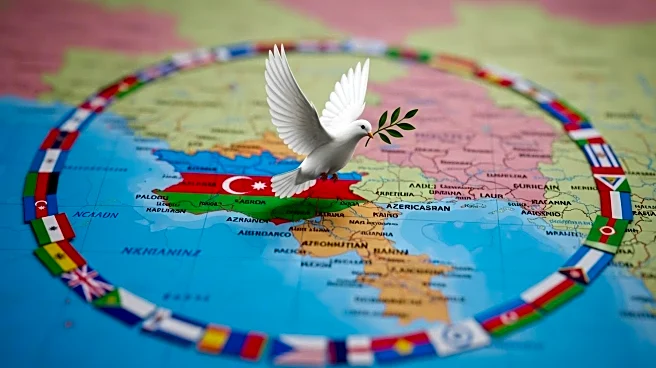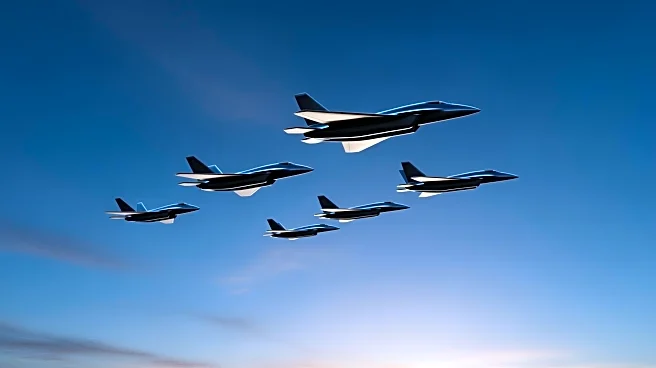What is the story about?
What's Happening?
President Trump has brokered a peace deal between Armenia and Azerbaijan, known as the Washington Accords, which aims to bring stability to the South Caucasus region. This agreement, part of the Trump Route for International Peace and Prosperity (TRIPP), seeks to normalize relations between the two countries within three years. The deal involves a joint U.S.-Armenian venture that provides commercial access through the 'Zangezur Corridor' in southern Armenia, while avoiding military transit. The agreement is seen as a strategic move by the U.S. to establish itself as a key geopolitical player in the region, traditionally influenced by Russia.
Why It's Important?
The peace deal is significant as it could reshape geopolitical dynamics in the South Caucasus, a region that borders Iran and has been under Russian influence. By facilitating this agreement, the U.S. aims to counterbalance China's Belt and Road Initiative and reduce Russian and Iranian influence. The deal also strengthens U.S.-Armenian relations, potentially integrating Armenia into U.S. supply chains and enhancing its security. However, the agreement faces skepticism, with concerns about Azerbaijan's intentions and the potential for regional spoilers like Russia and Iran to disrupt the peace process.
What's Next?
The U.S. plans to invest $145 million in the region and establish working groups to further the peace process. The success of the deal will depend on creating clear operational procedures and maintaining diplomatic engagement. Potential challenges include managing regional tensions and ensuring compliance with the agreement's terms. The U.S. entry into the region is seen as a transformative move, but the long-term stability of the peace deal remains uncertain, with ongoing concerns about Azerbaijan's military ambitions and regional power dynamics.
Beyond the Headlines
The peace deal could have broader implications for international relations, as it challenges traditional power structures in the region. The U.S. involvement may lead to a shift in alliances and influence, potentially reducing Russia's and Iran's roles. The agreement also highlights the use of economic incentives as a tool for diplomacy, suggesting a new approach to conflict resolution. However, the deal's success will require careful management of regional tensions and a commitment to long-term peacebuilding efforts.















